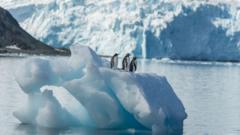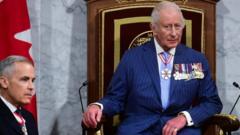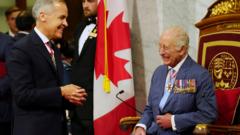In a momentous trip to the South Pole, President Gabriel Boric aims to bolster Chile's territorial claims in Antarctica amidst increasing global interest in the frozen continent.
Chile’s Landmark Antarctic Visit: A Step Towards Territorial Claims

Chile’s Landmark Antarctic Visit: A Step Towards Territorial Claims
President Gabriel Boric of Chile makes history with the first visit to Antarctica by a sitting Latin American leader, reaffirming Chile's sovereignty in the region.
On January 4, 2025, Chilean President Gabriel Boric embarked on a historic journey to Antarctica, marking the first time that a sitting president from a Latin American country has stepped foot on the icy continent. The visit is seen as a strategic move to reinforce Chile's territorial claims in a region that has been experiencing rising interest from nations around the world.
Accompanied by a delegation of officials, President Boric visited the Amundsen-Scott South Pole Station, a U.S. research facility, where he emphasized the significance of the trip. “This is a landmark event and a confirmation of our claim of sovereignty in this space,” Boric stated, highlighting the growing competition for influence in polar regions driven by climate change.
As the Arctic garners attention for its role in global trade and resource access due to melting ice caps, Antarctica remains relatively less scrutinized. However, interest is mounting as countries look to assert their presence in a region governed by the Antarctic Treaty System, which mandates that the continent be utilized for peaceful purposes only. Established during the Cold War, this agreement sought to create a military-free zone and manage competing territorial disputes.
The increasing competition for territorial rights in both polar regions demonstrates a significant shift in the geopolitical landscape, raising questions about environmental management, scientific research, and national interests in the context of climate change. Boric's historic journey signals a new chapter for Chilean governance and its commitment to sovereignty in the thrilling yet challenging world of polar politics.




















